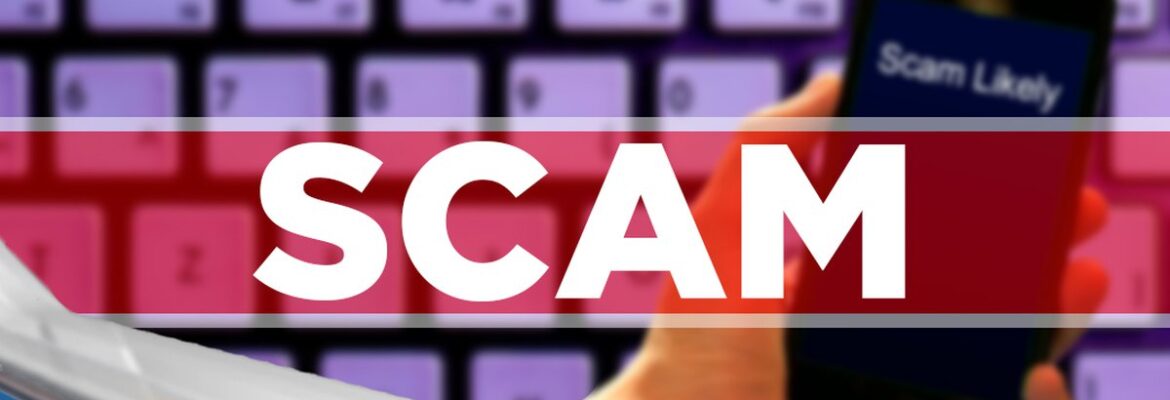Recognize The Top 10 Email Scams And Protect Yourself
Unfortunately, because of the relative anonymity afforded by the internet and due to the relative ease and cheapness with which internet communication can be achieved it has become an increasingly fertile ground for fraudsters. There is even an evolutionary competition going on between email filtering applications and fraudsters’ attempts at conning their unsuspecting victims. Below I am going to list some of the most prevalent Review Scam warnings and I will tell you a little of how to recognize the scam and protect yourself from it:
Advance fee fraud (419 fraud) — This is also sometimes known as the ‘Nigerian Scam’ which is a confidence trick in which the target is persuaded to advance relatively small sums of money in the hope of realizing a much larger gain. This is most often perpetrated by email and begins when the ‘investor’ is contacted; typically with an offer such as: ‘A A rich person from the needy country needs to discreetly move money abroad, would it be possible to use your account?’ and sums in the millions of dollars are named.
The investor is promise a large share of this money (generally 30-40% of the total). The propose deal is often present as a ‘harmless’ white-collar crime with no risk to the ‘investor’. The operation is professionally organize in Nigeria, with offices, working fax numbers, and often contacts at government offices. But the mark is then ask for money to bribe officials etc. Money is send and the mark is never contact again. Just delete any message where you’re offer money out of the blue, especially if the message originates in Africa.
The Charity Request Scam — The Charity Request/Disaster Relief scam is becoming far more prevalent these days. Scammers prey on the natural and admirable human desire to aid disaster victims by sending fake emails desiring donations or they set-up fake charity websites and steal the money donated to the victims of disasters. Often the approach will come in the form of what looks like a forwarded email. Essentially, if the request for donations came via email then not only is it a scam but there’s a good chance that it’s also a Phishing attempt (see below) especially if it directs you to a website. Never respond to these emails. If it’s a legitimate charity then find the phone number of the registered offices and donate over the phone.
The Employment Scam — In the Employment Review Scam warnings unscrupulous persons posing as recruiters and/or employers offer attractive employment opportunities which require the job seeker to pay them money in advance, usually under the guise of work visas, travel expenses, and out-of-pocket expenses. The scams can also involve lucrative offers of employment in Europe, the Middle East, West Africa, or South Africa with money demanded to be pay to an agency or travel agent for visas or travel costs.
This type of scam has become more and more frequent recently and it often targets people submitting their CVs to employment sites and bulletin boards. Often you will be address by name in the contact email. If you are contact by one of these emails and the deal is abroad and seems too god to be true then give it a wide berth.
The Holiday Scam — These started as unsolicited emails announcing. That you had won a ‘Cruise of a Lifetime’ or a ‘Free Holiday to Florida’ or the like. These scams are generally more active during. The summer months (May to July) as this is when most people take their holidays. Generally you will receive an email either announcing. That ‘you, or someone you know’ has entered you in a contest. And that you have won a free cruise or vacation package alternatively. Your are offer a cheap (or even free) travel deal — all at a price that’s too good to refuse.
If you do call to take up the deal you will find that there are hidden costs. You have to pay over odds for hotel you will have to sit through a sales pitch when you arrive. As with all similar Review Scam warnings. If you did not enter for something and an email comes out of the blue it’s probably a scam.
The Lottery Scam — In this scam you get an email saying. That you’ve won the email sweepstakes for a lottery that no-one’s ever heard of. Or you’ve been tell that you’ve won the email sweepstakes for a well-known lottery. But the contact address is not the contact address of the lottery organizers. This is a very common form of spam email and it’s east to avoid. Basically, lotteries only serve one of two purposes. They are there to raise money or they are there to provide publicity in order to draw-in customers. If you have not seen an ad campaign for a lottery. And you have never enter then any email you will have been send is a fraud.

